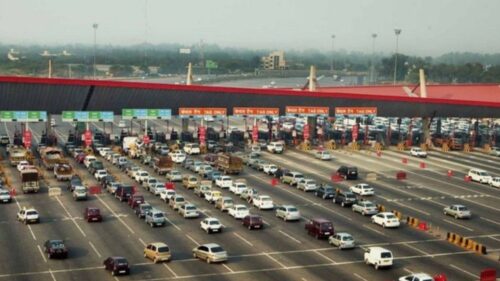By Eng. Riaz Khattak
In today’s fast-paced world, the constant stopping and starting at toll plazas not only stress passengers and drivers but also come at a significant cost. These plazas consume vast amounts of electricity and fuel to remain operational, with carbon emissions and safety concerns worsening due to congestion and queuing. However, a brilliant solution emerges – the elimination of toll plazas can lead to substantial savings for our nation. It promotes a reduction in oil dependency, energy conservation, increased efficiency, equity, and road safety, all while significantly reducing our import bill over million of $.
Countries like Finland, Kosovo, Cyprus, Luxembourg, Malta, Ukraine, Qatar, and Saudi Arabia have successfully adopted toll-free roads, setting a compelling precedent. The removal of chungis from district and local roads has already demonstrated its positive impact on the public.
Let’s explore three viable options to make this vision a reality:
Electronic Collection (E-tag, etc.):
Swift and user-friendly, this method allows actual users to pay. However, it faces resistance from casual users and owners of older vehicles who prefer the status quo. An attempt by the FWO to implement this system previously met with challenges.
Online Charge from Bank Accounts:
An efficient solution that charges users based on actual road usage, easily manageable through bank accounts. This approach integrates bank cards and vehicle plates, making it a recommended choice.
Fuel Levy (Rs.2 per liter):
A one-time fee per liter of fuel consumed ensures equitable contribution. It aligns with the 5Es-Framework and the 7-pillars outlined in Vision-2025. While it may affect smaller users, they consume relatively little fuel. It’s also worth noting that intercity user, which enjoy numerous state-provided amenities, are also charged but their fule usage is small compared to national road users. This option is highly recommended.
Implementing toll-free roads would result in an estimated saving of over Rs. 50 billion for our nation, as detailed below:
Fuel: A staggering one-billion vehicles per year, wasting 0.10 liters of fuel per vehicle per year, equating to 30 Billion Rupees in savings.
Human Time: Passengers and drivers spending 3billion minutes in toll queues, saving 12Billion Rupees.
Vehicle Time: 1-Billion vehicle minutes saved, amounting to 9Billion Rupees.
Vehicle Operations/Maintenance: Frequent braking and clutch usage for 1-billion vehicles per year leads to a saving of 2Billion Rupees.
Efficiency/Mood Improvement: Improved health and efficiency for 3billion individuals result in 6Bllion Rupees saved.
Zero Carbon Emission: A saving of 5Billion Rupees by reducing environmental harm.
While this visionary plan would undeniably benefit the nation, it’s important to note that the National Highway Authority (NHA) would lose its annual toll income of 30 billion Rupees.
A modest 0.5% fuel increment, equivalent to a Rs 2/liter levy, would generate 40 billion Rupees to be allocated to NHA for project maintenance.
The integration of vehicle registration with bank accounts ensures a seamless, non-stop operation.While motorways and public-private partnership roads shall remain under study until their concession period concludes, or few more year, ensuring a gradual and thoughtful transition.
let’s make toll plazas on national highways and provincial roads toll-free, ushering in a new era of efficiency, equity, and savings.This visionary plan promises a brighter, more sustainable future for our nation and Pakistan.(Copy rights WORLD TRIBUNE PAK)




